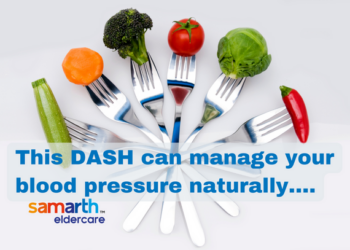We all have had those days of discomfort when something we ate did not disagree with us. Heartburn troubled us, and we reached for antacid tablets or syrups to find relief. Acidity-related diseases are common enough in India, with more than 7% of the population suffering from them. The range mostly varies across diverse groups of study, however, has mostly been within the 10% margin, with 30% as the upper limit. Researchers have attributed this prevalence to spice and non-vegetarian food dietary factors.
An occasional acidity issue is not a cause for worry at all. However, when it becomes a regular issue and almost every other meal troubles us, there could be chances of something more. GERD or gastroesophageal reflux disease is a disease wherein stomach acid can enter the oesophagus and cause heartburn and discomfort. Having acidity-related symptoms more than twice a week could be an indicator of this disease.
Causes

Join Now >
Typical reasons or risk factors for GERD are:
- Eating heavy meals
- Lying down immediately after a meal
- Obesity
- Bending over after a large meal
- Snacking just before sleeping
- Eating acidic or citrus fruits/spicy or fatty foods/junk foods
- Alcohol consumption
- Drinking beverages such as coffee or carbonated drinks
- Smoking
- Stress
- Certain medications
- Stomach abnormalities such as hiatal hernia
There is a ring of muscle at the entrance of our stomach called as lower oesophageal sphincter (LES). Usually, this closes after food passes through, but when it does or not or opens up often, stomach acid passes back into the oesophagus, causing reflux. This is more likely to happen in people who have hiatal hernia, the last point mentioned above.
Symptoms
Common symptoms are heartburn, bloating, regurgitation (acid coming into the throat or mouth), burping, hiccups, weight loss, dry cough, wheezing, chronic sore throat, etc.
Symptoms could be mild or severe depending on the disease’s progress. Also, some may experience only one or two symptoms. In some excessive cases, bloody vomiting or bloody stools are also seen.
When one or more of the above symptoms don’t let up, it’s time to meet the doctor rather than downing antacids. Chronic use of antacids can cause constipation and other side effects. Hence, delay can prove troublesome. Timely diagnosis can, however, help improve the situation.
Diagnosis
Mild disease symptoms are treated by the doctor with lifestyle and dietary changes and acid-blocking medications. However, if these don’t help, then various diagnostic tests may be conducted.
Radiography (Barium swallow test) – The patient is given a solution of Barium after which an upper GI tract X-Ray is taken to detect any constrictions.
Endoscopy – The doctor inserts a tube with a camera into the oesophagus through the mouth to check for any abnormalities.
Oesophageal biopsy – A tissue sample is taken for biopsy if any abnormalities are found during the endoscopy.
Oesophageal manometry – To check the motility of the oesophagus, a small tube is inserted through the nose, and the sensors on the tube record the oesophageal contractions.
pH monitoring – A small tube with a pH sensor is inserted through the nose into the oesophagus and left there for 24 hours to record acidity levels and compare them to normal levels.
Treatment
When the usual antacid medications don’t help, doctors prescribe acid-reducing medications such as H2 blockers, Proton Pump Inhibitors (PPI), foaming agents, or prokinetics. None of these are supposed to be taken without a proper doctor’s prescription and should only be taken in prescribed doses. In some worst-case scenarios, they may advise surgery as applicable.
Prevention
Prevention, indeed, is better than cure. Hence, follow some simple lifestyle changes to ensure to keep GERD at bay or under control.
- Eat smaller and more frequent meals
- Watch out for food triggers and avoid the same
- Avoid alcohol
- Quit smoking
- Get adequate sleep
- Do not lie down immediately after eating
- Watch your weight
- Keep head at a slightly raised level while sleeping
- Eat 2 to 3 hours before bedtime
- Avoid tight clothes
The bottom line to counter acid reflux disease is a healthy diet and lifestyle that can keep it in check.











